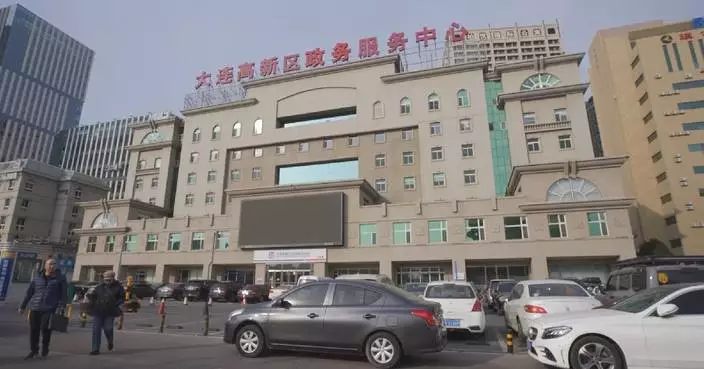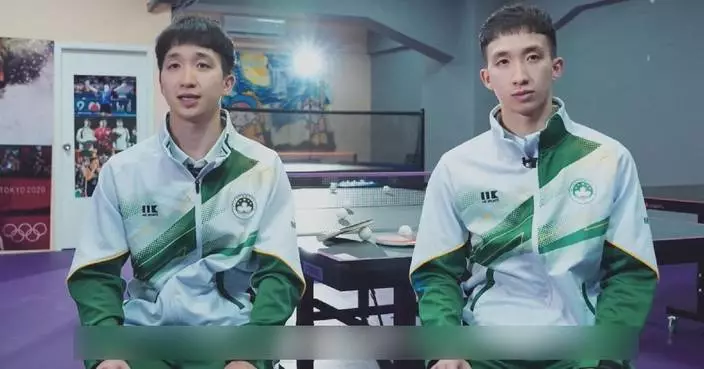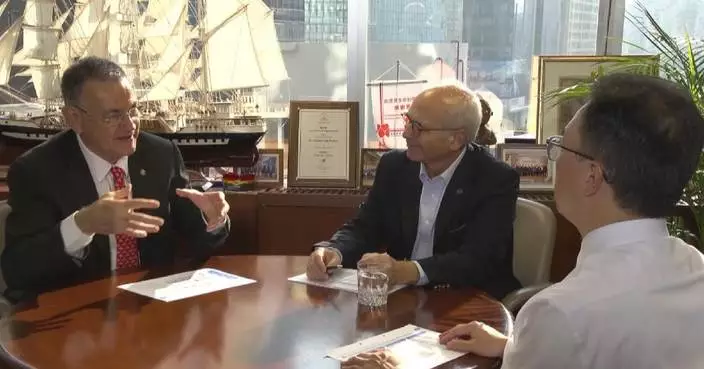The U.S. economic bullyism toward other countries will ultimately backfire, warned Zhu Guangyao, former Vice Minister of Finance of China, adding that the upcoming Donald Trump administration could pose significant challenges, not only for China but for the global community as a whole.
Zhu made the comments while attending the Annual Conference on China's Economy, organized by the China Center for International Economic Exchanges (CCIEE), a prominent public policy think tank. The conference, held in Beijing on Saturday, aimed to bring together experts, industry leaders, and government officials to discuss strategies for advancing China's economic development.
In an interview with China Global Television Network on the sidelines of the event, Zhu shared his insights into the potential implications for both China and the global economy under a second Trump administration.
"The upcoming Trump administration will pose a direct challenge to the entire international community. Trump's primary approach is through tariffs. Of course, we must also examine his broader economic strategies. For example, he has expressed a desire to cut U.S. corporate income taxes, which could have a profound impact on the global strategies of multinational corporations. At the same time, we need to consider the effects of Trump's policies on strengthening national defense and imposing sanctions against other countries," said Zhu.
Earlier, Trump announced plans to raise tariffs by an additional 10 percent on all Chinese goods entering the U.S., raising concerns that this could further strain China-U.S. trade relations and have a broader impact on the global economy.
Commenting on Trump's tariff threats, Zhu remarked, "I must say that the Sino-U.S. relationship is bound to face challenges as China's economic power continues to grow. The U.S. views China as the only country capable of competing with it in terms of both capability and willingness. However, China has never said it wants to replace any other country. Our development is for the happiness of the Chinese people and for world peace and advancement. This is China's core philosophy. On the other hand, the U.S. sees China as its greatest competitor and is attempting to suppress us in every possible way. But I believe that such suppression will ultimately backfire."
Zhu also noted that while the U.S. has taken steps to restrict China's high-tech development, China's semiconductor exports reached 1.03 trillion yuan (about 141.52 billion U.S. dollars) in the first 11 months of the year, reflecting a 20.3 percent year-on-year increase.
Turning to Trump's threat to impose a 25-percent tariff on all products imported from Mexico and Canada, Zhu warned that such protectionist measures could undermine regional free trade agreements.
"Trump is targeting what was originally the North American Free Trade Agreement, and later the United States-Mexico-Canada Agreement. His actions are effectively dismantling this alliance. I heard that Canadian Prime Minister Justin Trudeau visited Mar-a-Lago to speak with Trump, but unfortunately, it yielded no results," said Zhu.
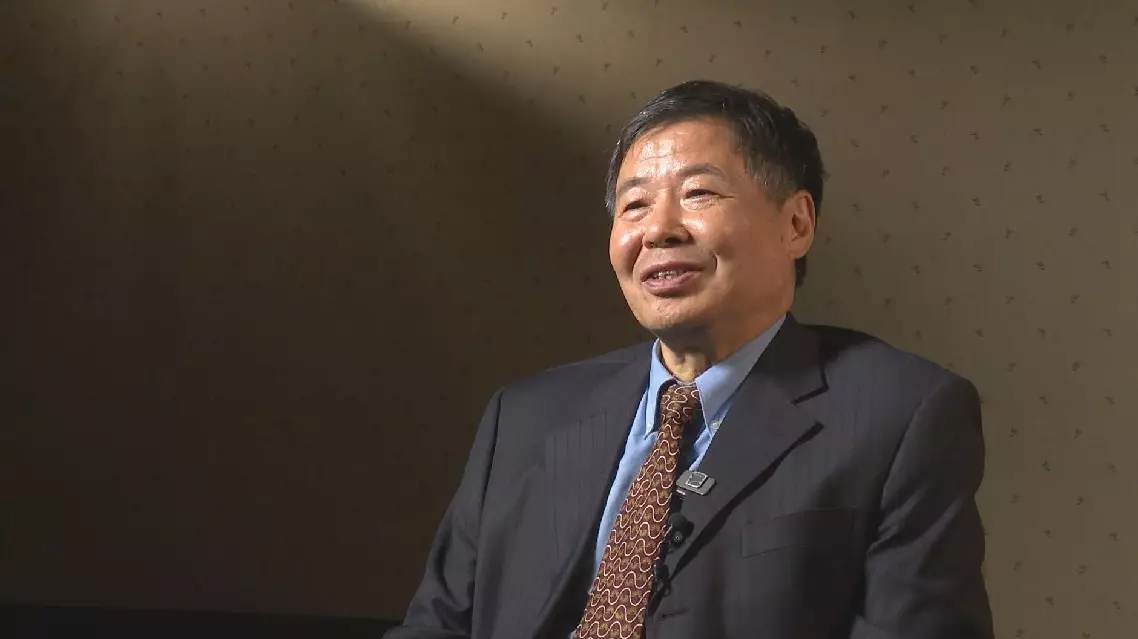
US economic bullyism against other countries to backfire: former vice minister of finance
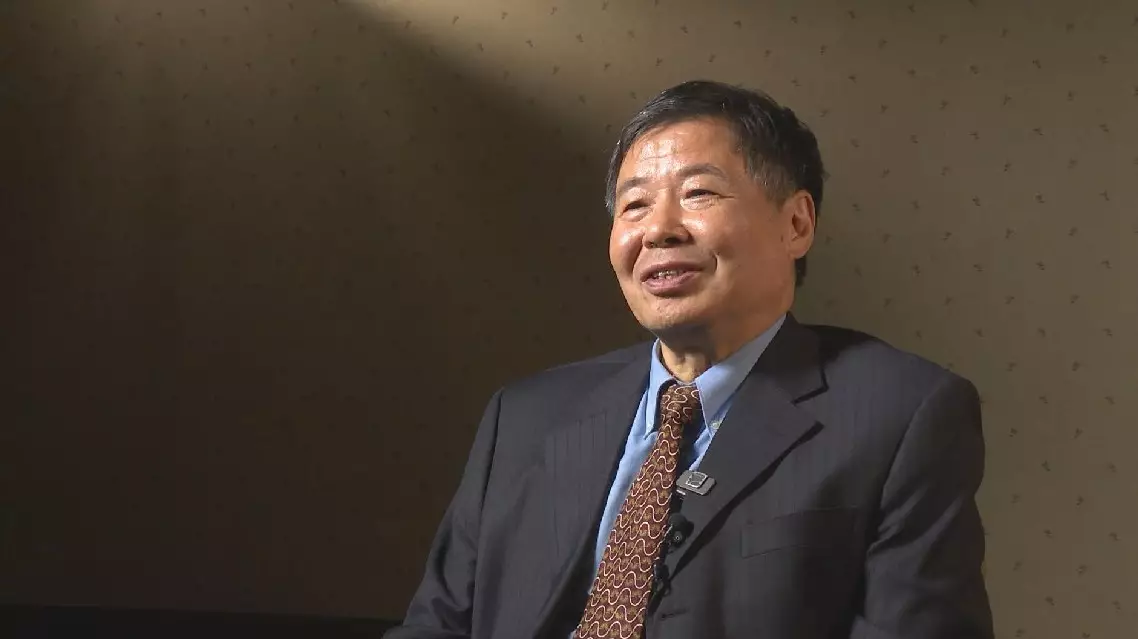
US economic bullyism against other countries to backfire: former vice minister of finance
A Seoul-based expert on Saturday criticized Yoon Suk-yeol's foreign policy as president, while hoping for a quick impeachment process so that South Korea could reinstate diplomatic relationship with major countries.
South Korea's Constitutional Court started a process Saturday to deliberate a parliamentary decision to impeach President Yoon Suk-yeol over his botched martial law declaration, Yonhap news agency reported.
Yoon's impeachment resolution was submitted to the Constitutional Court at Saturday 18:15 local time by Jung Chung-rae, chair of the National Assembly's Legislative and Judiciary Committee, the report said.
Yoon was officially suspended from his duties at 19:24 local time, the moment the impeachment resolution was delivered to his office, Yonhap said in another report.
Prime Minister Han Duck-soo will serve as the acting president until the Constitutional Court delivers its ruling.
The court now has 180 days to decide whether to approve the parliament's decision, a development that can trigger an early snap presidential election.
Moon Hyung-bae, the acting chief of the Constitutional Court, said he will convene a meeting of judges at 10:00 local time Monday, vowing to conduct a "swift and fair" trial.
"If the Constitutional Court does make the decision based on legal argument, rather than political sort of consideration, I would say in the final analysis, the democracy in South Korea is working. Having said that, I don't think the problem in South Korea is a problem of democracy, rather, as I said, is democracy, democratic means or institutions, how they are being used for good, or for political or personal interests of these politicians," said Rong Ying, a senior research fellow at the China Institute of International Studies and Chair Professor at Sichuan University, on Saturday on The Point with Liu Xin, a main current affairs program of China Global Television Network (CGTN).
"When you hear testimony that somebody was ordered to drag the legislators out of the parliament so that they could not vote, that would be very persuasive evidence that this was not simply a president acting on behalf of the best interests of the country," said Einar Tangen, a senior fellow at the Taihe Institute and Chairman of Asia Narratives, an online platform for Asian perspectives.
The impeachment motion on Dec. 4 concluded on Yoon's foreign policy, saying "Yoon has neglected geopolitical balance, antagonizing DPRK, China, and Russia, adhering to a bizarre Japan-centered foreign policy, and appointing pro-Japan individuals to key government positions, thereby causing isolation in Northeast Asia and triggering a crisis of war, abandoning his duty to protect national security and the people."
Seoul-based Haesun Kim, chair of Suntrans Global Asia, a consulting firm, also an expert advisor of Kangnam Labor Law Firm, criticized Yoon's foreign policy on the program.
"It's OK if we have a good diplomatic relationship with Japan, but neglecting other countries like China or Russia? Because we need diversified diplomatic relationship with other countries," said Kim.
"When the impeachment is accepted by the Constitutional Court, as soon as they decide and pass the decision, then we can have the election within 60 days to elect a new president. But as you know that, Trump will gain the (U.S.) government, and we need to deal with this new leader globally. We have to be very prepared, because all the other countries are preparing for the next government. We hope that this impeachment process can be settled very quickly and we have a new president, so that we can reinstate the diplomatic relationship with all these global leaders," said Kim.
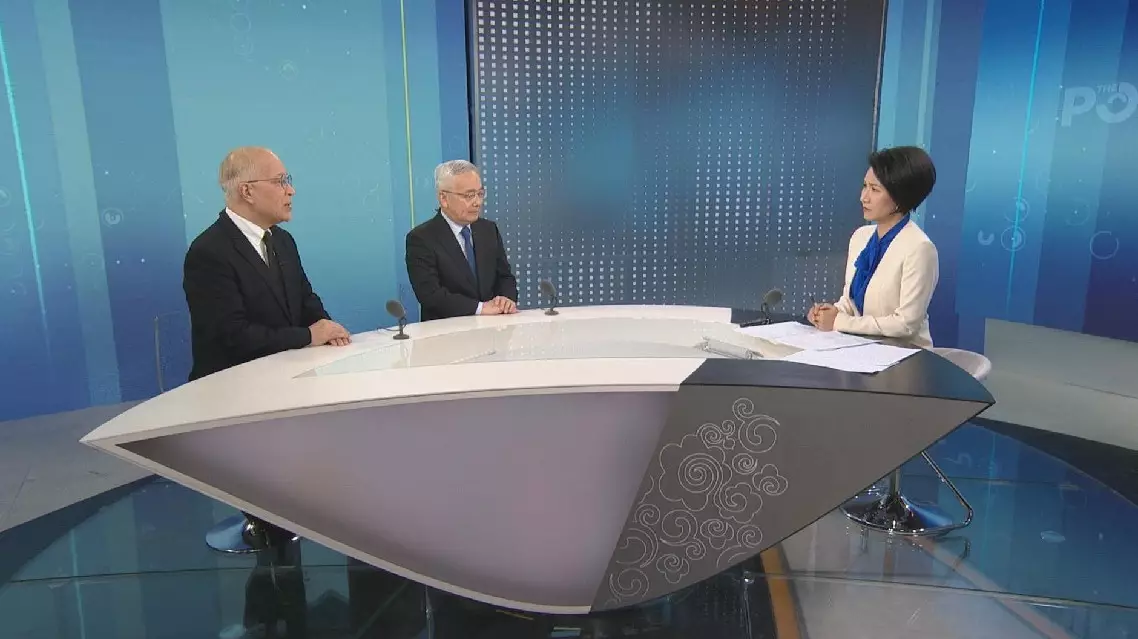
Seoul-based expert criticizes Yoon Suk-yeol's foreign policy for neglecting geopolitical balance





